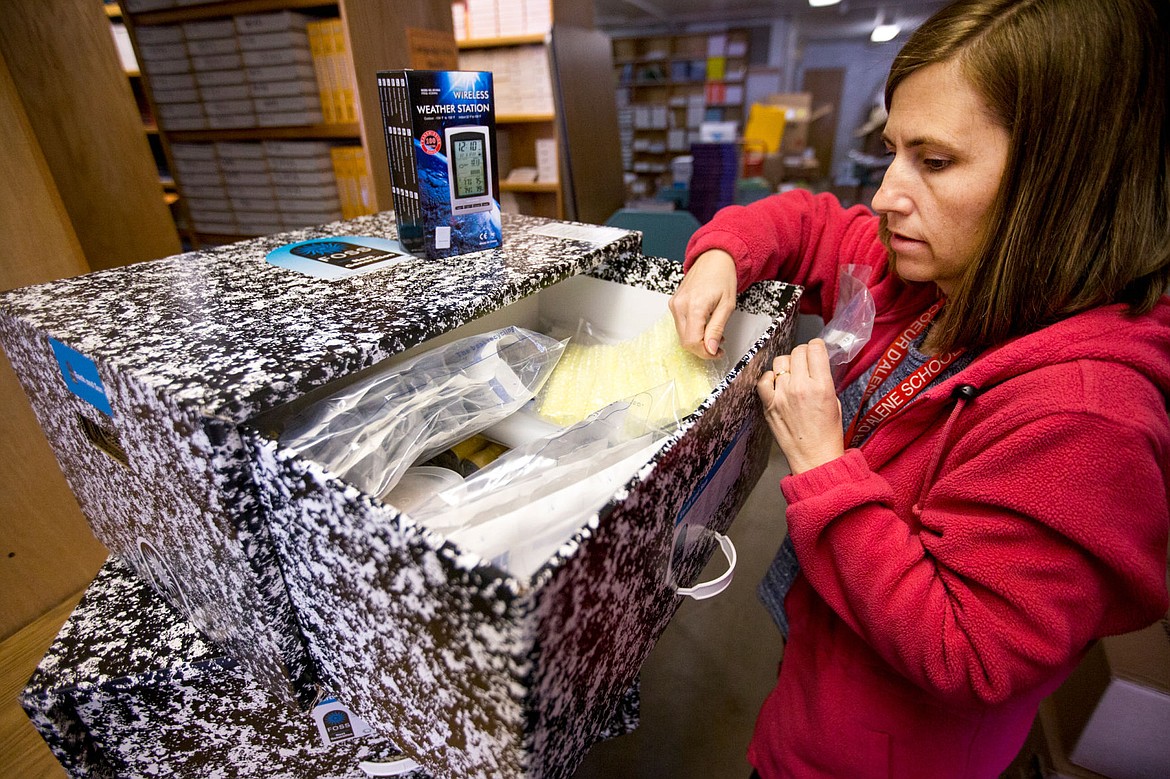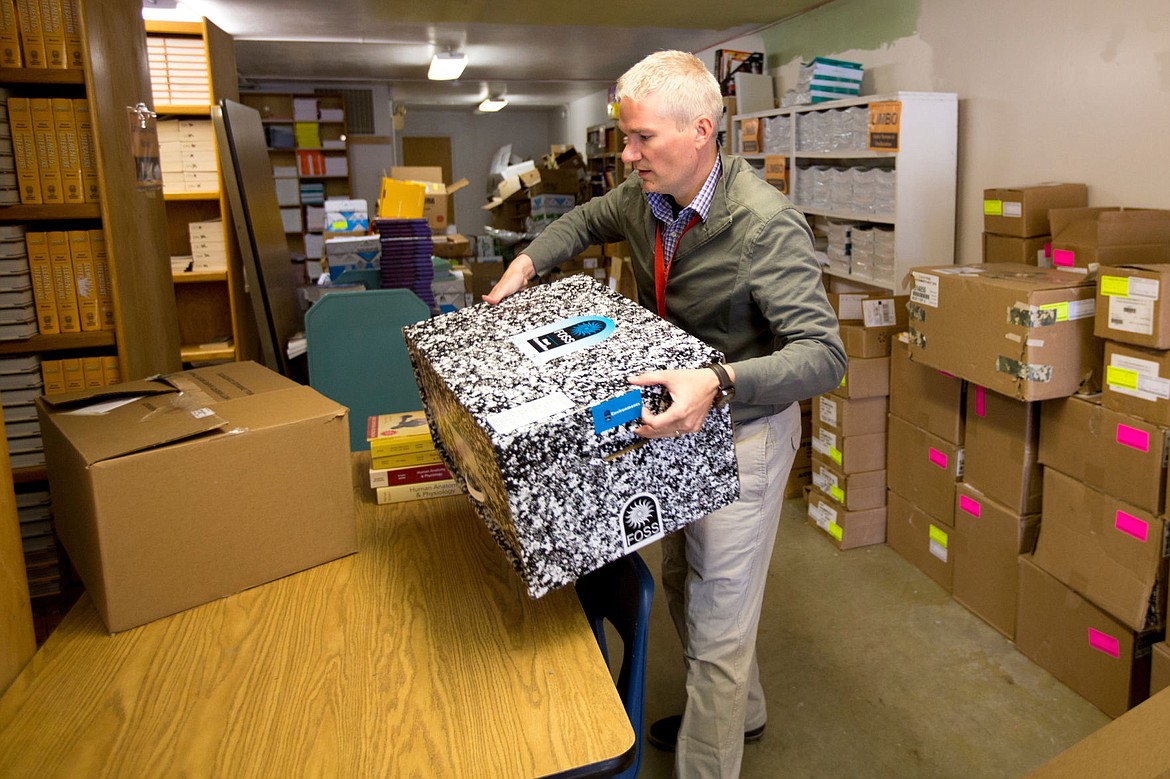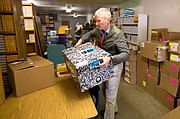Cd'A School District updates science curriculum
COEUR d'ALENE — Opportunities to update school books and classroom materials seem about as rare as the appearance of Halley's Comet, said Mike Nelson.
So, when the Coeur d'Alene School District director of curriculum and assessment got the chance to update the district's science curriculum this year, he took it very seriously.
"Anytime that you put money behind an item like a book, I think people see that sometimes as 'Well, they are just buying a book,'" Nelson said. "Actually, we are buying instruction, we are buying resources, we are buying things that are going to light a kid's eyes up and those are the most important things."
Last week, an eight-month process of researching and selecting new science textbooks for every grade level in the district came to fruition when school district trustees unanimously approved the $910,095 purchase of the new teaching resources. Nelson told The Press the oldest science textbooks used in district classrooms were purchased 15 years ago, and the new materials focus on hands-on, laboratory-based scientific learning.
"Science itself doesn't change, but the way that we teach science and what we want kids to learn from science does change," Nelson added. "And you can imagine the excitement that comes in any grade level when, instead of opening a book to learn vocabulary about science, they are actually going to be exploring science."
The process of selecting the new books began Oct. 1, 2015, Nelson said, with an open call to 175 textbook companies around the world. Nelson said the open call included a very detailed vision, prepared by district officials and board members, of what science instruction should accomplish from a student’s first day of school in kindergarten through high school graduation.
"Because we were very clear with what we were looking for from the material, we got very high quality materials back," Nelson said of the 145 samples the district received from textbook companies. "Then it becomes a community experience."
Nelson said the district was allowed to use a storefront at Riverstone for a month, which allowed officials to set up tables and display various options by grade level. Educators then assessed the items without any knowledge of the company that produced the textbook.
"Afterwards, we meet up and see what is bubbling to the top," Nelson said, adding the district then hosted a community review night at the storefront.
The final aspect of vetting potential materials, Nelson said, occurred in classrooms throughout the district. Teachers were trained and given the opportunity to use potential textbooks in their classrooms for three weeks before providing input to district officials.
"It helps us not only refine our decision, but broaden our horizon a little bit," Nelson said. "We get to see how kids react to one title versus another and how the teachers feel supported by one title versus another."
Trustees also created a 27-member, volunteer community advisory panel to evaluate textbooks, and Nelson said the panel included former teachers and local scientists among others. The panel's first impressions of the textbooks were in line with what officials were seeing in the classroom, which allowed Nelson and his team to begin negotiating with the desired companies.
"We negotiated the heck out of it honestly," he said. "Some of our vendors, we got 25 to 30 percent off what they suggest as retail because we do such a prescribed process and they know what we are looking for. Coeur d'Alene is the kind of district that they want to be involved in so it gives us the flexibility to be able to work with them to find the best value for our dollar as well."
After negotiations concluded, district officials decided to purchase textbooks and materials from the following vendors: Foss Next Generation (grades K-5), Pearson (grades 6-8), Chemistry by Pearson, "Marieb's Essentials of Anatomy and Physiology" by Pearson, Environmental Science and Forensic Science by Cengage, and Physics by Holt.
Bringing as many individuals as possible into the process, Nelson added, was important in not only forming a complete assessment of potential material, but in ensuring the investment was a community effort as well.
"Teaching is really a community experience and if you don't have something that people can believe in, and they don't see good quality materials coming home, and they aren't having vibrant conversations around the dinner table about what happened in class — we aren't doing our job well," Nelson said.
The new science materials, according to Nelson, meet both current and proposed state education standards. It also, he added, allows teachers to obtain materials for hands-on learning that will give students even more exposure to STEM-related careers.
Teachers will be trained throughout next year to use the new resources, with the first training scheduled for August. Students, Nelson said, are poised to benefit tremendously from the investment.
"Their exposure to science is going to be much greater, and it's going to give us greater flexibility because what we're doing in science also pairs very well with what we are doing in math and language arts," Nelson said. "It also pairs very well to our citizenship and our understanding of what it means to be a citizen of Coeur d'Alene."



